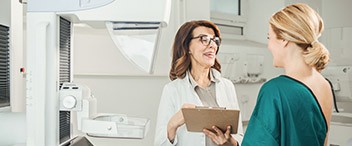Cancer screenings are powerful tools in the realm of health care, offering the promise of early detection and, subsequently, more effective treatment and improved outcomes. These screenings encompass a range of diagnostic tests and procedures designed to identify cancer at its earliest, most manageable stages or even in precancerous conditions, often before any noticeable symptoms arise. From mammograms for breast cancer to colonoscopies for colorectal cancer and a variety of other screening methods tailored to different types of cancer, these proactive measures play a pivotal role in safeguarding our health.
Benefits of cancer screenings
Early detection: One of the primary advantages of cancer screenings is the ability to detect cancer at its earliest stages, often before symptoms appear. Early detection can lead to more effective treatment options and a higher chance of a cure.
Increased survival rates: Cancers that are diagnosed at an early stage are typically more treatable, resulting in better survival rates. Screening allows for timely intervention, which can prevent cancer from spreading to other parts of the body.
Reduced treatment intensity: When cancer is caught early, less aggressive treatment options may be required. This can lead to fewer side effects, shorter treatment durations, and improved quality of life for patients.
Improved treatment outcomes: Early detection can enable health care providers to tailor treatment plans to the specific characteristics of the cancer, potentially increasing the chances of successful treatment.
Prevention of advanced disease: Regular screenings can help identify precancerous conditions or early signs of cancer, allowing for preventive measures to be taken before the disease progresses.
Peace of mind: For individuals at higher risk of cancer due to family history or other factors, regular screenings provide peace of mind by allowing them to actively monitor their health and take proactive steps if needed.
- Public health impact: Widespread cancer screening programs have the potential to reduce the overall burden of cancer in a population, leading to better public health outcomes.






